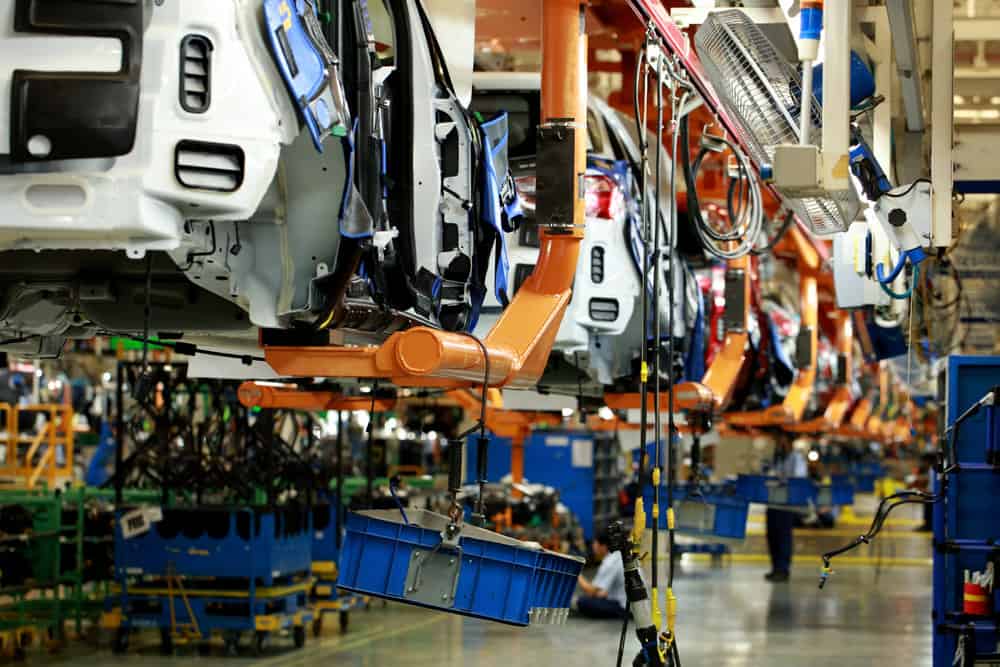
In a move largely considered to be protectionism of U.S. auto industries, the Trump administration has sat down to study if there is a need for additional tariffs on U.S. imports of passenger cars, trucks, and automobile parts. In this regard, Section 232 of the U.S. Trade Expansion Act of 1962 would be scrutinized, to see if it would allow further import restrictions to be enforced in the interest of national security.
If the tariffs come into force, it could be a red signal to auto manufacturers from South Korea, Germany, Japan, Canada, and Mexico – countries where the U.S. market makes up a bulk of the export activities. With a burden of added tariffs on their back, it would be tough for foreign businesses to level up with their U.S. auto counterparts, thus giving the local manufacturers an undue advantage – a kind of austerity that President Trump has been hard selling from the time of his presidential race.
Though protectionism of U.S. interests sounds good on the surface, it leads to many unintended consequences. For one, American consumers would bear the brunt, as a lot of the well-known foreign auto brands would eventually become a lot more expensive if tariffs are levied. The Commerce Department has been directed to look into the possibilities of imposing a 25% tariff, which would be disastrous in the global context and might ramify into trade wars.
Putting barriers for entry would make the U.S. automobile industry an oligopoly, with few companies ruling sans a competitive market – reducing the size of the selection pool that consumers have, while propping up prices at a possibly diminished vehicle quality.
“This is a case where everybody gets hurt, and some get hurt less bad than others. It’s not like it’s just the Detroit Three versus everybody else. One of the most American cars that is sold here is the Toyota Camry,” said Kristin Dziczek, an industry and labor analyst for the Center for Automotive Research.
Germany, South Korea, China, and Japan who account for nearly 20% of the total vehicles sold in the U.S., would be particularly hard hit with the new tariffs. Vehicle exports from Mexico and Canada made up another 23% of the U.S. auto sales, which could be salvaged by NAFTA. But experts believe that the proposed tariffs could be used as leverage during the NAFTA talks with Mexico and Canada, to wrestle more power to the U.S. side of the equation.
Unnecessary import duties would sabotage existing relations with countries. Much like the China-U.S. trade spat that unraveled a month back, countries would be wary of protectionism leading to a tit-for-tat game, ending up being a pyrrhic victory for the U.S. at best. Last year, the U.S. imported 8.7 million vehicles out of the 17.2 million that were sold, with the share of locally manufactured vehicles falling to 50.1% – a 1% reduction year-on-year. If tariffs are put in place, it will cause a massive disruption in global supply chains, with unimaginable repercussions.
But quite expectedly, Detroit is happy with the turn of events. Dennis Williams, president of the United Auto Workers, a trade group that represents the collective interests of General Motors, Fiat Chrysler, and Ford, spoke to reporters and declared his support for Trump, mentioning that “the U.S. has become a dumping ground for a lot of countries.”
The U.S. Chamber of Commerce is up in arms against the Trump directive, quite visible in a statement it released last week. “The U.S. Chamber strongly opposes the administration’s threat to impose tariffs on auto imports in the name of national security. If this proposal is carried out, it would deal a staggering blow to the very industry it purports to protect and would threaten to ignite a global trade war,” it read. The statement also made light of the fact that the U.S. auto industry is actually growing, with production being doubled in the last decade and has created 50% jobs for Americans since 2011.
Introducing new tariffs in a finely balanced global supply chain would never be an effective policy, as witnessed in the Chinese episode and it needs to understood that the U.S. has come this far due to its open markets, and pushing countries to a corner would likely douse competition and the benefits that come of it.
Stay up-to-date with the latest commentary and insights on FreightTech and the impact to the markets by subscribing.










